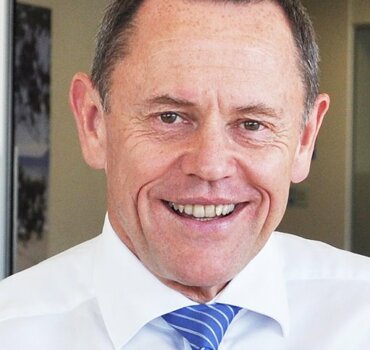
Simon Upton

Simon Upton
Invasive weeds have been branded the country’s silent invader and the Government is being called to “lift its game” to deal with the issue.
Parliamentary Commissioner for the Environment, Simon Upton says native ecosystems must be protected from thousands of exotic plants.
“Rampaging weeds pose a deadly threat to our native ecosystems by smothering, outcompeting and preventing regeneration of native plants,” he said.
“There is a silent invasion of our forests by plants like wild ginger. Vines like banana passionfruit, old man’s beard and climbing asparagus are strangling forest understories.
Russell lupins are carpeting braided rivers and wilding conifers covering hillsides.
“If left to their own devices, these weeds will transform our ecosystems beyond recognition.”
A report, Space invaders: A review of how New Zealand manages weeds that threaten native ecosystems, explains that protecting native ecosystems from being overrun by weeds helps our native taonga plants and saves crucial habitat.
Mr Upton has made a series of recommendations to improve the way weeds threatening native ecosystems are managed and wants to see improved national leadership to help coordinate action on which plants to manage, where and how they are to be managed and by whom.
Māori brought about a dozen new plants with them to Aotearoa. Since European colonisation, more than 25,000 plant species have been introduced.
Over 1800 of these exotic plants now survive in the wild and are joined by about 20 new ones each year.
Most are escapees from gardens. The risks they pose will rise as climate change increases the area over which many of them can spread and conquer.
“We cannot rid New Zealand of every single weed. There are simply too many. But we can be smart about which ones we choose to tackle, have a clear outcome in mind and make sure we coordinate our actions,” Simon Upton said.
“Weed management programmes need to be achievable and sustainable over time – potentially a very long time.
“There is no point removing one species and creating an expensive ‘weed-shaped hole’ waiting to be reinvaded. Knowing what comes next is critical.”
He said New Zealand’s biosecurity system was s very good at protecting borders from exotic plants and looking out for farming and forestry interests.
“But protecting native ecosystems from plants already established here does not get the same attention.”
Professor Bruce Clarkson, Environmental Research Institute, University of Waikato, said the report addressed a long standing lack of coordinated action and underfunding to control and manage an increasing number of environmental weeds threatening indigenous ecosystems.
“The current emphasis on removing mammalian predators will surely assist indigenous biodiversity but not if it results in weeds (and introduced herbivores) being overlooked,” he warned.
“The PCE report highlights the magnitude and growing impacts of environmental weeds that capture ecosystems which become dominated by foreign species.
“Here in the Waikato, for example, I am aware of shining privet and palms (Chinese windmill palm, Bangalow palm and Phoenix palm) invading and compromising a good number of the restoration plantings in urban areas.
“There remains a systemic need to understand which environmental weeds most limit efforts to restore or reconstruct indigenous habitat in urban, periurban and rural zones and how to efficiently increase dominance by indigenous plants.








